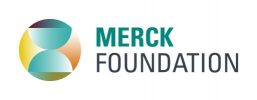Merck Foundation supports the training of Twenty Future Oncologists in Africa through one and two year Oncology Fellowship Program in 2016 & 2017.
The second stage of Africa Oncology Fellowship Program that started in 2016 with the aim to increase the limited number of oncologists in Africa.
Dr. Rasha Kelej, CEO of Merck Foundation emphasized “One of the main objectives of Merck Foundation is to build a strong platform of qualified medical, paediatric and surgical oncologists across the continent through the Merck Africa Oncology Fellowship Program”.
“Twenty candidates from Uganda, Zambia, Ethiopia, Namibia, Ghana, Sierra Leone, Liberia, Tanzania and Kenya have enrolled in the Merck Africa Oncology Fellowship Program in partnership with African ministries of health, the University of Nairobi, Kenya, Tata Memorial Centre, India and Alexandria University, Egypt in 2016 and 2017. We are very proud of our contribution to lead Africa to a better future through changing the landscape of Cancer care in the continent”, Rasha Kelej added.
Prof. Frank Stangenberg- Haverkamp, Chairman of Executive Board and Chairman of Board of Trustees of Merck Foundation explained “Improving cancer care needs a substantial improvement in infrastructure and increase in the number of specialized workforce, which does not exist in many, if not most, Sub-Saharan African countries.”
“Enrolling more candidates from more African countries into our Fellowship Program, is an important step forward towards improving access to cancer care across the continent”.
In June 2017, BIO Ventures for Global Health (BVGH), and the African Organization for Research and Training in Cancer (AORTIC), released a white paper on the African continent’s emerging cancer crisis.
Over 20% of African countries have no access to cancer treatments at all, while access is limited and sporadic in other countries. Later-stage diagnosis in African patients contributes to poorer outcomes. For example, 5-year female breast cancer relative survival rates are 46% in Uganda and 12% in The Gambia, compared with around 90% in developed countries, the report cited.
In partnership with Ministries of Health across Africa, the Merck Africa Oncology Fellowship Program provides one-year and two-year oncology fellowship programs and a three year master degree in medical oncology at Tata Memorial Centre, India, University of Nairobi, Kenya and Alexandria University, Egypt, respectively.
Launched in 2016 as part of Merck cancer Access Program, with the aim to increase the limited number of qualified oncologists in the continent, 3 medical doctors from Sub-Saharan African countries Kenya and South Africa were granted a two-year Africa medical oncology fellowship training at the University of Nairobi.
In addition, Merck Foundation supported another two African doctors from Ghana and Tanzania for the Paediatric and Adult Medical Fellowship program that is conducted annually at Tata Memorial Centre, India.
“We will continue to enrol more candidates and engage other countries on this program as we firmly believe this is a vital component of improving the quality and accessibility of cancer care in Africa,” added Rasha Kelej.
Solutions for Cancer Access
The inaugural Merck Africa Asia Luminary, holding 24 – 25 October 2017 in Cairo, Egypt, will feature a workshop dedicated exclusively to improve access to cancer care through Capacity building through Merck Foundation.
It will convene key players from the global, regional and local cancer network, health ministers, First Ladies, with the goal of encouraging dialogue among stakeholders, raise awareness of the issues, explore partnership opportunities to generate ideas for potential solutions to existing challenges.
Call for Action
“A world where everyone should lead a healthy and fulfilling life, this is Merck Foundation’s vision. We are working together to achieve the Sustainable Development goals- SDGs.
The SDG 3: Ensure healthy lives and promote wellbeing for all at all ages, calls us to sustainably invest on building healthcare capacity to improve access to safe, effective, quality, and affordable healthcare solutions for all by 2030.” Dr. Kelej emphasized.

